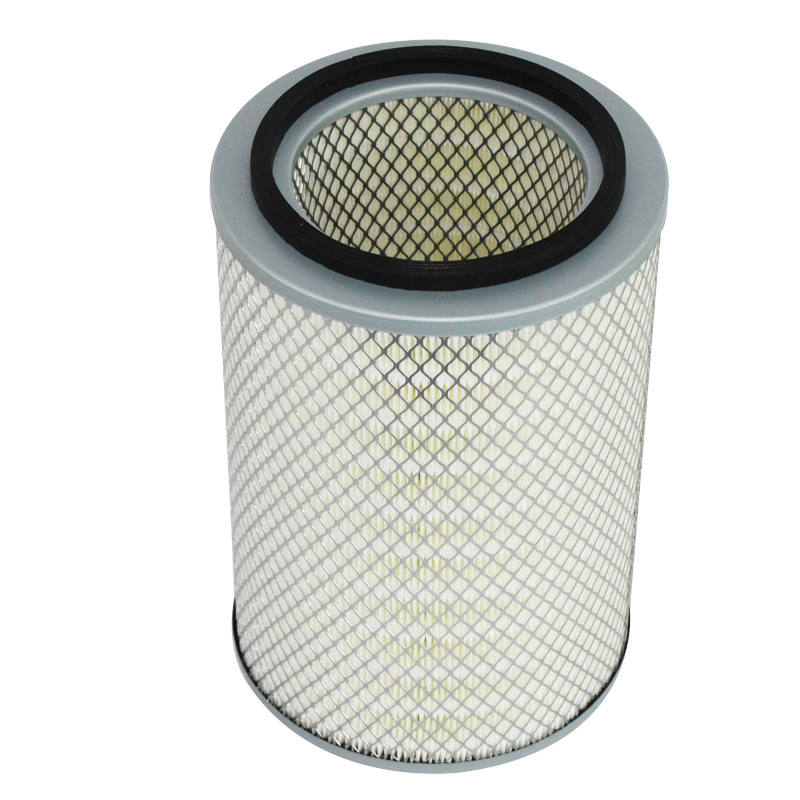Air Filter for AC: Your Comprehensive Buying Guide
Jul 04,2025
Air Filter for AC: What You Need to Know Before You Buy Table of Contents Understanding AC Air Filters The Importance of Air Filters in AC Systems Types of AC Air Filters: A Detailed Overview How to Choose the Right Air Filter for Your AC Installation Process of AC Air Filters Maintenance Tips for Your AC Air Filter Common Issues and Solutions for AC Air Filters Final Thoughts on

Air Filter for AC: What You Need to Know Before You Buy
Table of Contents
- Understanding AC Air Filters
- The Importance of Air Filters in AC Systems
- Types of AC Air Filters: A Detailed Overview
- How to Choose the Right Air Filter for Your AC
- Installation Process of AC Air Filters
- Maintenance Tips for Your AC Air Filter
- Common Issues and Solutions for AC Air Filters
- Final Thoughts on AC Air Filters
- FAQs about AC Air Filters
Understanding AC Air Filters
AC air filters play a crucial role in ensuring that your air conditioning system runs efficiently. They trap dust, pollen, pet dander, and other airborne particles, preventing them from circulating in your home. Understanding how these filters work is essential for maintaining good indoor air quality and prolonging the life of your AC unit.
The Importance of Air Filters in AC Systems
Air filters are not just optional accessories for your air conditioning system; they are vital components that contribute to the overall performance and efficiency of your unit. A clean filter improves air quality, enhances energy efficiency, and helps prevent costly repairs. Neglecting to replace or clean your air filter regularly can lead to reduced airflow, increased energy consumption, and even system failures.
Types of AC Air Filters: A Detailed Overview
When it comes to air filters for AC systems, several options are available, each designed to meet different needs. Understanding these types can help you make an informed decision.
1. Fiberglass Filters
Fiberglass filters are the most basic type of air filter. They are inexpensive and disposable, offering minimal resistance to airflow. However, they also trap larger particles and provide limited filtration, making them less effective for improving indoor air quality.
2. Pleated Filters
Pleated filters are made from polyester or cotton and are folded to increase their surface area. They capture smaller particles than fiberglass filters and are available in various MERV ratings, which indicates their filtration efficiency. They are a popular choice for homeowners seeking a balance between cost and performance.
3. HEPA Filters
High-Efficiency Particulate Air (HEPA) filters are among the most effective air filters available. They can trap 99.97% of particles that are 0.3 microns or larger. While they tend to be more expensive, their superior filtration makes them ideal for individuals with allergies or respiratory issues.
4. Activated Carbon Filters
Activated carbon filters are designed to absorb odors and gases. These filters are particularly beneficial for households with pets or smokers. They can be used in conjunction with other filters for enhanced air quality.
5. Electrostatic Filters
Electrostatic filters use static electricity to trap particles. They are washable and reusable, making them environmentally friendly and cost-effective in the long run. However, their effectiveness can decrease over time if not cleaned properly.
How to Choose the Right Air Filter for Your AC
Choosing the right air filter for your AC system involves considering various factors, including the type of filter, MERV rating, size, and your specific needs. Here’s a brief guide:
1. Assess Your Air Quality Needs
If you have allergies or respiratory conditions, consider investing in a HEPA filter or a high-MERV pleated filter. For typical households, a pleated filter will usually suffice.
2. Check Filter Size
Always check the size of the filter your AC unit requires. The wrong size can lead to poor filtration and damage to your system.
3. Understand MERV Ratings
Filters are rated on a scale from 1 to 16, known as the MERV rating. A higher rating indicates better filtration. For residential use, filters with a MERV rating between 7 and 12 are generally recommended.
4. Consider Cost and Longevity
While cheaper filters may save you money upfront, investing in a higher-quality filter can offer better airflow and efficiency, saving money on energy bills in the long run.
Installation Process of AC Air Filters
Installing an air filter in your AC system is a straightforward process, but it’s crucial to ensure it’s done correctly for optimal performance:
1. Turn Off Your AC System
Before starting any installation, always turn off your AC system to prevent any accidents.
2. Locate the Filter Compartment
The filter compartment is usually located near the air handler or the return air duct. Consult your AC unit’s manual if you’re unsure.
3. Remove the Old Filter
Carefully slide out the old filter, noting its orientation so you can install the new one correctly.
4. Insert the New Filter
Place the new filter into the compartment, ensuring that the airflow arrows on the filter point in the direction of the airflow.
5. Turn On Your AC System
Once the new filter is installed, turn your AC system back on and check for proper airflow.
Maintenance Tips for Your AC Air Filter
Regular maintenance is essential for ensuring your AC’s air filter functions optimally:
1. Check Filters Monthly
Inspect your air filter monthly, especially during peak usage seasons. Replace or clean as necessary based on its condition.
2. Use High-Quality Filters
Investing in high-quality filters can extend the time between changes and improve air quality.
3. Keep the Area Clean
Ensure that the area around your AC unit is clean and free from debris. This helps maintain efficient airflow and reduces strain on the system.
Common Issues and Solutions for AC Air Filters
Even with regular maintenance, issues can arise with your AC air filters. Here are some common problems and their solutions:
1. Reduced Airflow
If you notice reduced airflow, your filter may be clogged. Check and replace it if necessary.
2. Unpleasant Odors
Musty or unpleasant odors can indicate a dirty filter or mold growth. Replace your filter and consider using an activated carbon filter for better odor control.
3. Increased Energy Bills
Higher energy bills can result from poor airflow due to a dirty filter. Regularly maintaining your air filter can help mitigate this issue.
Final Thoughts on AC Air Filters
Investing time and effort into understanding air filters for your AC system can lead to significant benefits, including improved air quality, greater energy efficiency, and a longer lifespan for your unit. By following the guidelines provided in this article, you can make informed decisions that will enhance your indoor environment.
FAQs about AC Air Filters
1. How often should I change my AC air filter?
It’s generally recommended to change your AC air filter every 1 to 3 months, depending on usage and the type of filter.
2. Can I clean my air filter instead of replacing it?
Some filters, like electrostatic filters, can be washed and reused. However, disposable filters should be replaced when they become dirty.
3. What is the best type of air filter for allergies?
HEPA filters are considered the best option for individuals with allergies, as they capture a high percentage of allergens and particles.
4. Does a higher MERV rating mean better filtration?
Yes, a higher MERV rating indicates better filtration capabilities. However, it’s essential to ensure that your HVAC system can accommodate higher-rated filters without reducing airflow.
5. Can a dirty air filter cause my AC to freeze?
Yes, a dirty filter can restrict airflow, leading to a drop in temperature and causing the AC coils to freeze. Regular maintenance can help prevent this issue.
PREVIOUS:
Contact Us







